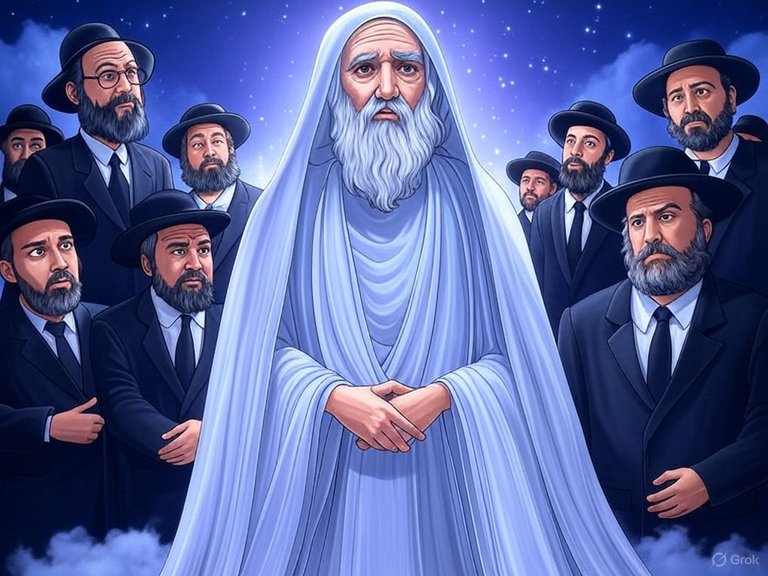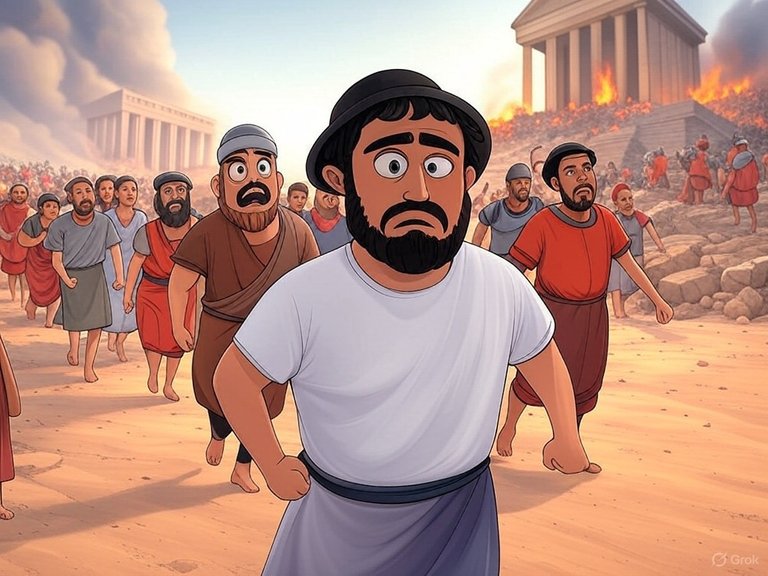The Divine Plan, the Messianic Divide, and the Misunderstood Tension in Israel

Christians and Messianic Jews is a complex tapestry woven through centuries of theology, history, and misunderstanding. At the heart of this dynamic lies a divine plan outlined in Romans 11:8-11, where God temporarily blinds Israel with a "spirit of stupor" until the full number of Gentiles enters the fold. This plan was meant to extend salvation to the Gentiles while provoking Israel to envy, drawing them back to their Messiah. But history took a different course, and the failure of the Gentile church to fulfill its role has left a legacy of tension, confusion, and, at times, outright hostility. Today, this tension manifests most acutely not between Jews and Christians, but between Jews and Messianic Jews—a group often mislabeled and misunderstood.
The Divine Plan and the Gentile Failure
According to Romans 11, God’s design was clear: through Israel’s transgression, salvation would reach the Gentiles, and through the Gentiles’ salvation, Israel would be stirred to envy. Yet, for over 1,500 years, starting after the 1st century, the Gentile church failed to provoke this envy. Instead of embracing the Hebraic roots of their faith, early Christians drifted toward Greek and Greco-Roman philosophy. By the 3rd century, the church had forcibly severed itself from its Jewish foundation, abandoning the Torah and its practices. What remained was a Christianity that felt foreign to Jews—a faith that no longer reflected the covenant God established with Israel.
Without the Torah as a common thread, the Gentile church had little to offer that would challenge or stir Israel. Jews could easily dismiss Christianity as a Gentile religion, detached from the promises of their God. This disconnect lies at the heart of why figures like Martin Luther struggled in their efforts to convert Jews. Luther began his career sympathetic to the Jewish people, believing he could win them over to Christianity. But when they rejected his message, his tone darkened. He accused them of deicide—murdering Jesus—and his writings grew venomous. Luther’s failure wasn’t just personal; it was theological. He preached a Messiah who, he claimed, abolished the Torah—a notion that made no sense to Jews who saw the Torah as God’s eternal covenant. Without provoking envy, Luther’s mission crumbled, and his frustration turned to resentment.

The Modern Misconception: Jews, Christians, and Messianic Jews
Today, this historical failure echoes in modern narratives, particularly in claims of Jewish persecution of Christians in Israel. National Socialists and others often point to videos allegedly showing Jews attacking “Christians,” framing these incidents as evidence of anti-Christian hostility. But the truth is more nuanced. The so-called “Christians” in these videos are often not Christians at all—at least not in the traditional sense. Many don’t even accept the label. The real targets of this tension are the Yehudi Mishichi, or Messianic Jews, a group that provokes a unique kind of jealousy in a way traditional Christians never could.
Let’s set the record straight: Jews aren’t attacking Christians in Israel. Every year, countless Christians visit the Holy Land and return with stories of warmth and hospitality. Why? Because a Christian, detached from the Torah, poses no real challenge to a Jew’s worldview. A Christian’s faith, rooted in a post-Torah theology, doesn’t threaten the Jewish identity or stir the kind of envy Paul envisioned. Messianic Jews, however, are different. They live at the intersection of two worlds, embracing Yeshua (Jesus) as the Messiah while adhering to the Torah and Jewish practices. Their existence challenges the Jewish rejection of Yeshua in a way that traditional Christianity never could.

The Messianic Jews: A History of Silence and Survival
Messianic Jews, or Yehudi Mishichi, have always existed, though often in the shadows. For centuries, they navigated a precarious existence, hiding their belief in Yeshua when among Jews and muting their observance of the Torah when among Christians. By the 6th century, their movement had largely faded under the weight of persecution from both sides. Yet, their legacy endures, and today, they are reemerging as a powerful force in Israel—one that stirs deep emotions among their Jewish brethren.

This tension traces back to a pivotal moment in history: the destruction of the Second Temple in 70 AD. During this crisis, a group known as the Nazarenes—early Messianic Jews—faced a defining choice. As the Romans surrounded Jerusalem, they prepared to fight alongside their fellow Jews to defend the Temple. But then they recalled the words of their master, Rabbi Yeshua, who had warned them to flee to the mountains when they saw Jerusalem encircled (Matthew 24:16). Obeying His command, they dropped their weapons and fled, leaving their kin to face the Roman onslaught alone. To the Jews, this was an act of betrayal—a wound that has never fully healed.
This resentment is reflected in the Jewish prayer known as the Siddur, which includes a curse against the “Minim.” Contrary to popular belief, the Minim are not Christians. The term specifically refers to the sect of the Nazarene—today’s Messianic Jews—whose actions during the Temple’s destruction left a lasting scar. The hostility directed at Messianic Jews today stems not just from their belief in Yeshua, but from this historical memory of abandonment.
Christians in Israel: Welcomed, Not Persecuted
Christians, by contrast, face no such animosity in Israel. I’ve yet to meet a Christian who didn’t describe their visit to the Holy Land as a profoundly positive experience. Jews treat Christians with respect and warmth, recognizing that their faith, while different, poses no existential challenge to Jewish identity. This reality undermines the narratives pushed by figures like Stew Peters and others who claim Jews persecute Christians. Such claims are not just misleading—they’re rooted in a fundamental misunderstanding of the dynamics at play. The true tension lies with the Messianic Jews, who embody a bridge between two worlds. Their faith in Yeshua and their adherence to the Torah provoke a reaction that traditional Christians simply don’t elicit. They remind Jews of a Messiah who fulfills the Torah, not abolishes it—a message that cuts to the core of Jewish identity and stirs the envy Paul spoke of in Romans 11.


Conclusion
The story of Jews, Christians, and Messianic Jews is not one of simple hostility or persecution. It’s a story of a divine plan, a Gentile church that lost its way, and a small but resilient group that continues to challenge both sides. The Messianic Jews, far from being mere victims, are a testament to the enduring power of a faith that bridges the Old and New Covenants. They provoke jealousy not through confrontation, but through their very existence—a living reminder of what could have been had the Gentile church stayed true to its Hebraic roots.
As we navigate these tensions today, let’s move beyond the myths and misconceptions. Christians are not persecuted in Israel. Jews are not the enemies of the faith. And the Messianic Jews? They’re not just caught in the middle—they’re pointing the way forward, fulfilling a role that has been part of God’s plan all along.

You received an upvote ecency